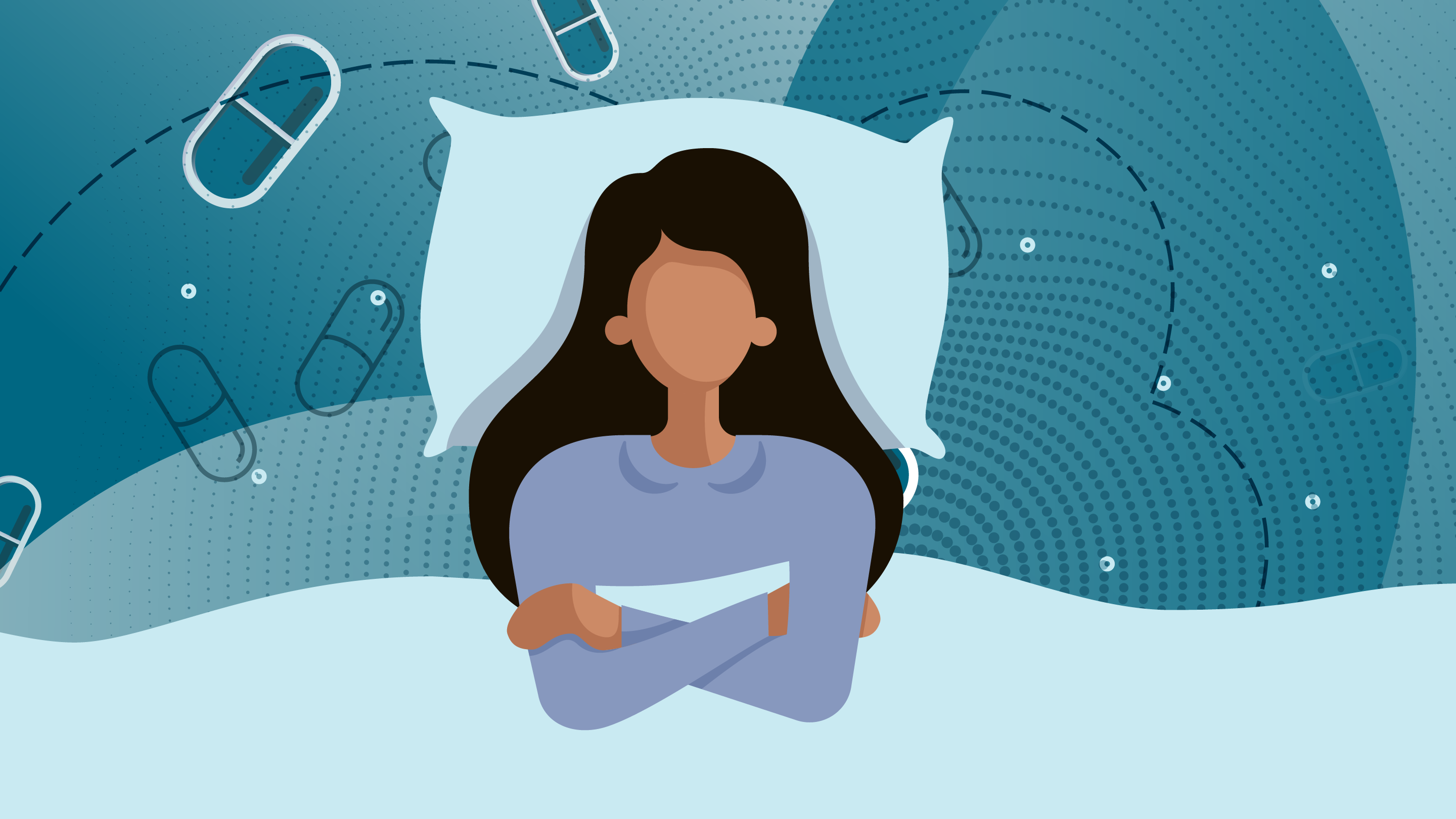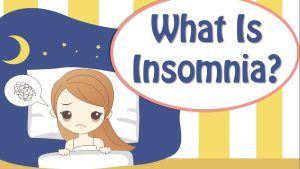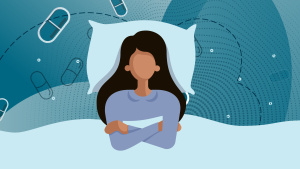Excessive phone use has become a widespread problem in the modern world.
With smartphones and the internet, we are constantly connected to a vast amount of information and entertainment. This constant exposure to the screens of our phones can take a toll on our sleep patterns, leading to insomnia.
What is Insomnia?
Insomnia is a sleep disorder that causes difficulties in falling or staying asleep. It can lead to a range of other health problems, including fatigue, anxiety, and depression.
One of the biggest contributing factors to insomnia is the blue light emitted by our phone screens, which can interfere with our circadian rhythm and suppress the production of the sleep hormone melatonin.
Insomnia Statistics
According to the National Sleep Foundation, 50-70 million adults in the United States have some form of sleep disorder.
Statistics show that approximately 30% of adults in the United States have reported symptoms of insomnia in the past year.Insomnia is more common in older adults, with the highest prevalence in those over the age of 60.
Women are more likely to experience insomnia than men, with rates of insomnia in women ranging from 25-33% compared to 10-15% in men.
Chronic insomnia affects approximately 10% of the population and is defined as difficulty sleeping for at least three nights per week for a period of three months or longer.
The economic cost of insomnia is estimated to be around $63 billion annually in the United States, due to lost productivity, healthcare expenses, and other related costs.
Insomnia is often comorbid with other health conditions, including depression, anxiety, and chronic pain.
These statistics highlight the significant impact of insomnia on the health and well-being of individuals and society. It is important to address insomnia and seek treatment to improve sleep quality and overall health.
How to Treat Insomnia Caused By Excessive Phone Use?
Here are some of the best ways to treat insomnia caused by excessive phone use:
Limit Phone Usage Before Bedtime
Limiting phone usage before bedtime is a crucial step in treating insomnia caused by excessive phone use.
The blue light emitted by phone screens can interfere with our circadian rhythm, making it difficult to fall asleep and stay asleep. By reducing the amount of time spent on your phone before bedtime, you can reduce the impact of blue light on your sleep and improve the quality of your rest.
One way to limit phone usage is to turn off your phone or switch it to night mode before going to bed. Night mode reduces the amount of blue light emitted by the screen, making it easier for your brain to transition into sleep mode. This mode can be activated manually or set to turn on automatically at a specific time each night.
It is also recommended to avoid using your phone in the hour or two before bedtime. This includes checking emails, scrolling through social media, or engaging in other activities that require the use of your phone’s screen.
Instead, engage in activities that promote relaxation, such as reading a book, meditating, or taking a warm bath.
Removing your phone from your bedside table or keeping it out of reach can also help limit your phone usage before bedtime. This can help prevent the temptation to use your phone in the middle of the night and ensure that your sleep environment is free of distractions.
Use a Blue Light Filter
Using a blue light filter is another way to treat insomnia caused by excessive phone use. Blue light filters are designed to reduce the amount of blue light emitted by your phone screen, making it easier for your brain to transition into sleep mode.
There are a variety of blue light filter apps available for both iOS and Android devices. These apps typically work by automatically reducing the amount of blue light emitted by the screen at night or by allowing you to manually adjust the level of blue light. Some popular blue light filter apps include f.lux, Twilight, and Night Shift.
Many smartphones now come equipped with built-in blue light filters or night modes. These modes can be turned on manually or set to automatically turn on at a specific time each night.
Using a blue light filter can help improve sleep quality by reducing the impact of blue light on your circadian rhythm. This can help you fall asleep faster, stay asleep longer, and wake up feeling refreshed and rejuvenated.
Establish a Bedtime Routine
A relaxing bedtime routine can help you wind down, release tension, and prepare your mind and body for sleep. By consistently following a bedtime routine, you can train your body to recognize that it is time to relax and sleep.
Some popular bedtime routines include reading a book, taking a warm bath, meditating, practicing deep breathing exercises, or doing light stretching. It is important to choose activities that promote relaxation and calmness, rather than activities that stimulate the mind or body.
It is important to create a sleep-conducive environment. This includes keeping your bedroom quiet, cool, and dark, and avoiding screens (including your phone) for at least an hour before bedtime.
Having a consistent bedtime routine can also help regulate your circadian rhythm, making it easier to fall asleep and wake up at the same time each day. This can help improve sleep quality and prevent sleep disorders, including insomnia.
Practice Good Sleeping Hygiene
Sleep hygiene refers to the habits and behaviors that promote healthy sleep patterns. By following good sleep hygiene practices, you can improve your sleep quality and prevent sleep disorders, including insomnia.
Creating a comfortable sleep environment is an important aspect of good sleep hygiene. This includes keeping your bedroom cool, quiet, and dark, and investing in a comfortable mattress and pillows.
It is also important to avoid screens (including your phone) for at least an hour before bedtime, as the blue light emitted by screens can interfere with your circadian rhythm and make it difficult to fall asleep.
Sticking to a consistent sleep schedule is another key component of good sleep hygiene. This means going to bed and waking up at the same time each day, even on weekends. This can help regulate your circadian rhythm and prevent sleep disorders, including insomnia.
It is also important to avoid caffeine, alcohol, and nicotine before bedtime. Caffeine is a stimulant that can interfere with sleep, while alcohol can interfere with the quality of your sleep and disrupt your circadian rhythm. Nicotine is also a stimulant that can make it difficult to fall asleep and stay asleep.
Conclusion
Excessive phone use can lead to insomnia, a sleep disorder that can have serious consequences for your health and well-being.
By following these simple steps, you can reduce the impact of blue light on your sleep and improve your sleep patterns.
Whether you choose to limit your phone usage, use a blue light filter, establish a bedtime routine, or practice good sleep hygiene, taking steps to treat insomnia caused by excessive phone use is an important component of good health and well-being.
If you want to enjoy better sleep and improve your overall health, it is important to be mindful of your phone usage and take steps to reduce its impact on your sleep patterns. By doing so, you can experience the benefits of restful, rejuvenating sleep and enjoy a higher quality of life.



